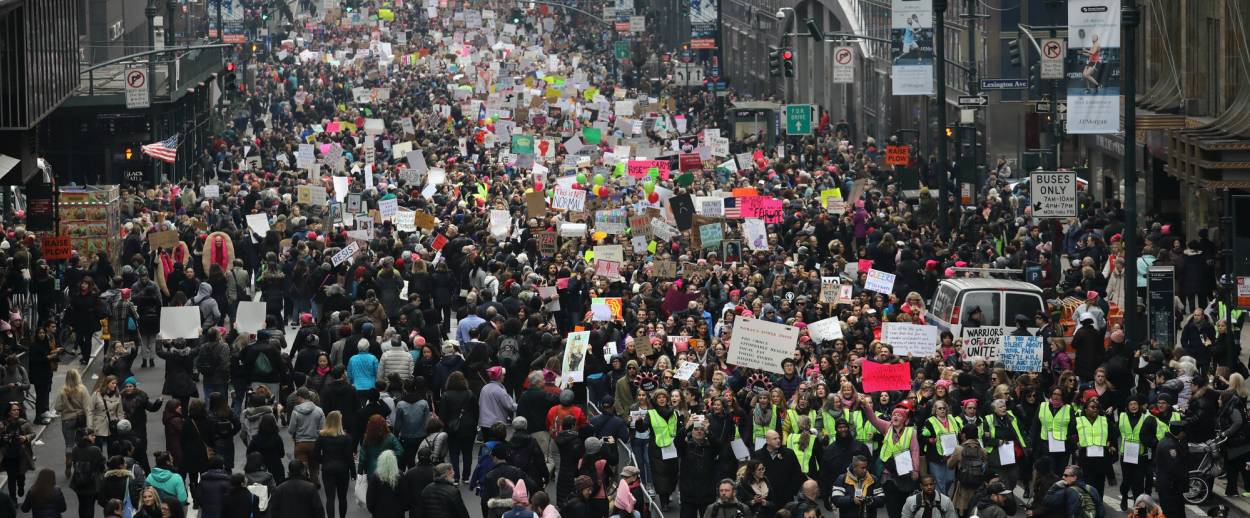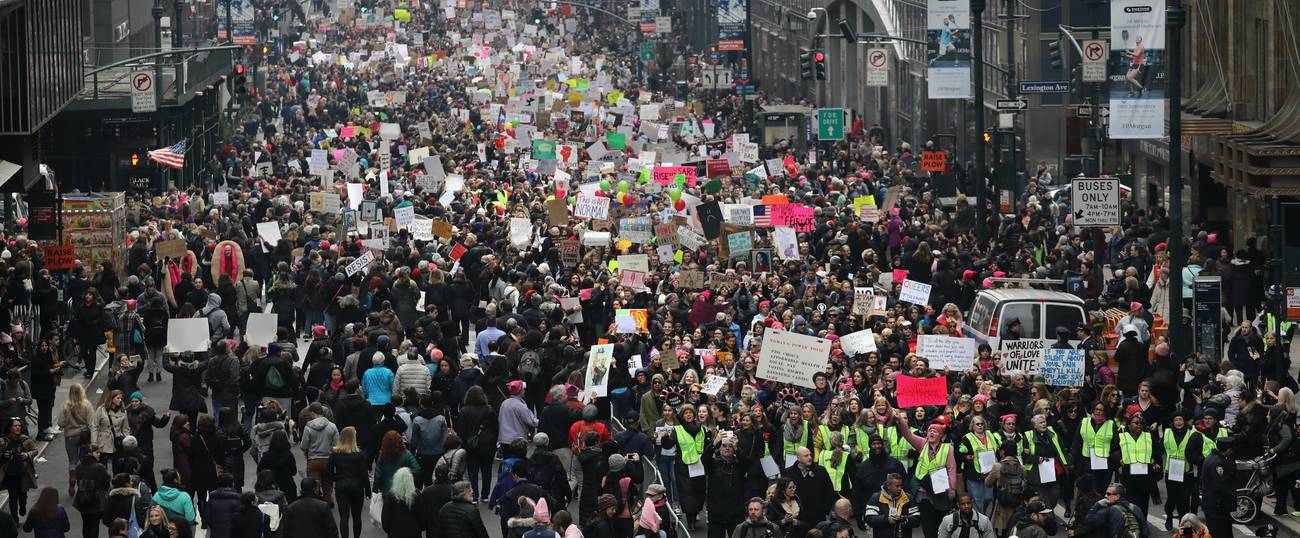Reconciling Political Protest and the Day of Rest in the Era of Trump
The Torah and Talmud teach that speaking out against injustice is a fundamentally religious act




I have a routine for when I get ready for Shabbat each week. I shower and get dressed in my Shabbat clothes. I make sure that the lights that need to be on are on, and those that need to be off are off. I check my timers to make sure they’re accurate. I set my Shabbat alarm, take out my book for the night, and set the table if I’m having guests. Once everything is as it should be, I light candles.
I also have a routine for when I go out to march. Since my first protest many years ago, I have learned what to do to make the experience go as smoothly as possible. I dress in layers, to make sure I am ready for any weather. I put on sneakers so my feet won’t hurt from all of the walking. I make sure my phone is charged, and take out my camera or a sign that I have made. I pack a small bag with water, snacks, and an ID. Then I am ready to go.
I have always been proud of my activism, considering it an essential part of my Jewish identity. But Shabbat has never been the time for protesting. Shabbat is for shul, spending time with friends, and taking a reflective break from the world.
This week, though, I had to answer a new question: What happens when my Shabbat routine and my protest routine conflict? Do I wear Shabbat clothes or protest clothes? Do I commit myself to quiet prayer, or to outspoken chanting? Because this Shabbat, hundreds of thousands of people were making their voices heard as part of the Women’s March on Washington, and at satellite marches all over the world. This collective voice, demanding an America that is inclusive of all Americans, cried out to be heard, and I needed my voice to be part of it. But can marching, can crying out, be a part of the Shabbat experience?
This past week’s Torah portion provided my answer. Just two hours before the march began, I sat in shul as we read the story of Shifra and Puah, the midwives tasked by Pharaoh with killing all of the Israelite baby boys as they were born. The Torah tells us, “The midwives feared God, and so they did not do as Pharaoh the king of Egypt told them, but instead, they let the boys live.” In this, one of the earliest recorded acts of civil disobedience, Shifra and Puah remind us that serving God means protecting the vulnerable while defying those in power, even when doing so is deeply dangerous. Like keeping Shabbat, speaking out against injustice is a fundamentally religious act. The two are not mutually exclusive, but instead, part of the same service of God.
As the Babylonian Talmud teaches in tractate Shabbat 54b: “Anyone who has the ability to protest the members of his household and does not is held responsible for the members of his household. For his city and does not—he is held responsible for his city. For the world and does not—he is held responsible for the entire world.”
And that is why this Shabbat, I wore sneakers with my Shabbat clothes, and instead of carrying a volume of Talmud when I went to shul, I carried a poster with that Talmudic quote. After services were over, when we went downstairs for kiddush, the room was full of people changing into T-shirts that said things like “Women’s rights are human rights,” pulling on comfortable shoes, and unfurling signs. To paraphrase the famous quote by Abraham Joshua Heschel, after praying with our mouths, we prayed with our feet, not despite our commitment to God, but because of it. And as we joined, first with hundreds of Jews on the Upper West Side of Manhattan, and then with hundreds of thousands of all backgrounds and religions on 5th Avenue, I remembered the prophet Micah’s famous charge: “What does the Lord require of you? Only to do justly, to love mercy, and to walk humbly with your God.”
Rachel Rosenthal is a David Hartman Center fellow at the Shalom Hartman Institute and teaches Talmud at the Jewish Theological Seminary. She holds a PhD in rabbinic literature.